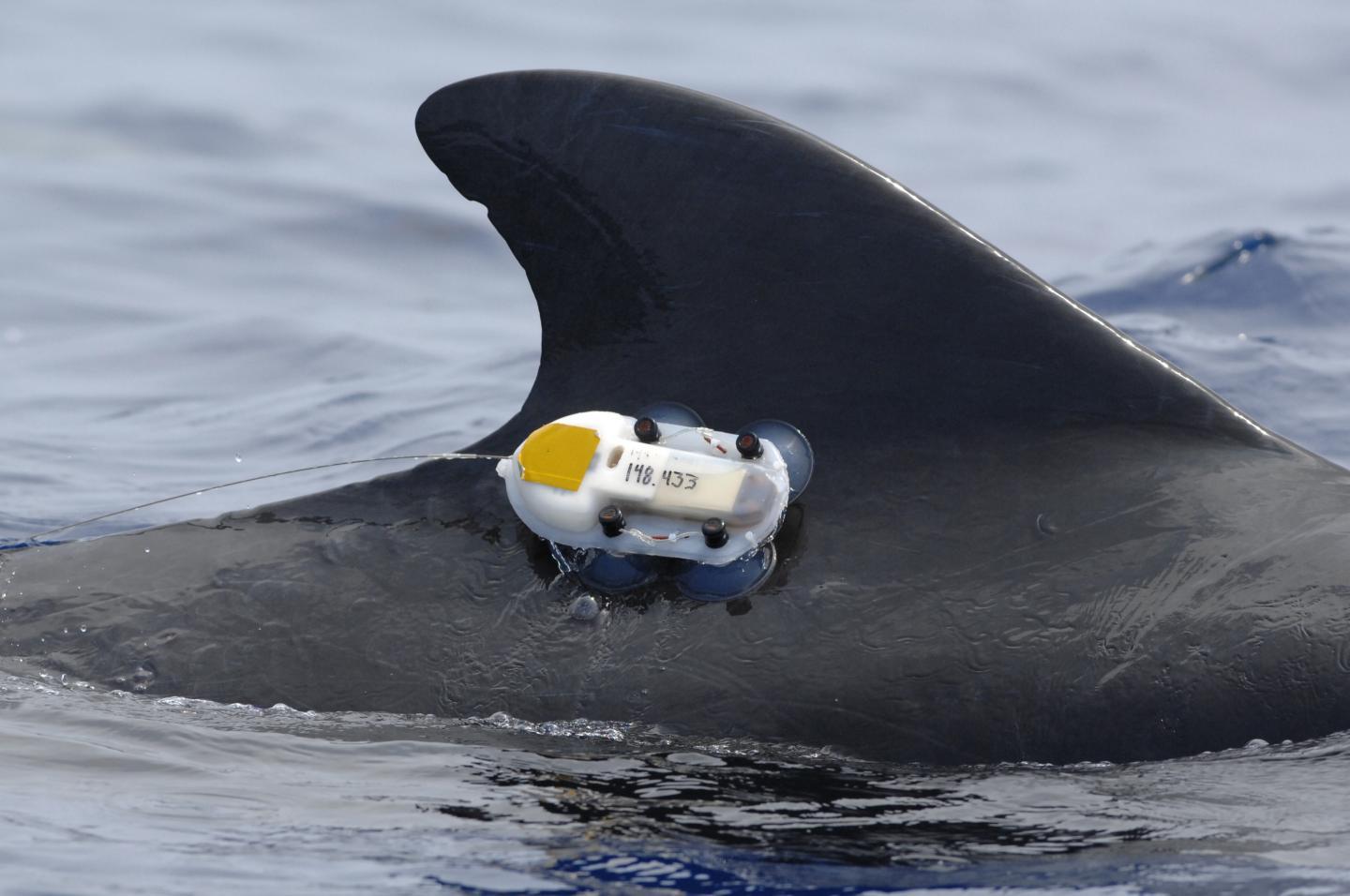DURHAM, N.C. -- Many marine animals are world travelers, and scientists who study and track them can rarely predict through which nations' territorial waters their paths will lead.
In a new paper in the journal Marine Policy, Duke University Marine Lab researchers argue that coastal nations along these migratory routes do not have precedent under the law of the sea to require scientists to seek advance permission to remotely track tagged animals in territorial waters.
Requiring scientists to gain advance consent to track these animals' unpredictable movements is impossible, the Duke scholars say. More importantly, it undermines the goals of the law, which are meant to encourage scientific research for conservation of marine animals.
Their paper aims to establish the legality of using various tagging technologies known as bio-logging to track migratory marine animals under an international law that was written before these technologies were widely used.
The United Nations Convention on the Law of the Sea, or UNCLOS, requires in some circumstances that researchers obtain consent from coastal nations to conduct research within 200 nautical miles of their shores. The authors argue that this rule was established for research conducted from boat or aircraft, and makes little sense for research using tagged animals that swim or fly into that range.

Requiring scientists to seek advance consent to remotely track tagged animals in a nation's waters undermines the conservation goals of marine law, researchers say.
(Photo Credit: Ari Friedlaender.)
Tracking animals through bio-logging techniques allows researchers to learn about the movement, behavior and abundance of a variety of marine animals including turtles, fish, mammals and birds. This knowledge is essential to marine animal conservation, an important goal of the UNCLOS, said David Johnston, assistant professor of the practice of marine conservation ecology at Duke. Johnston uses bio-logging in research that supports the conservation of marine vertebrates nationally and internationally.
The power of bio-logging stems from its ability to collect data remotely, but it provides no certainty about where animals will actually go. "It's essentially unknowable where tagged animals are going to go before you start tracking them," said Johnston. "You put tags on turtles in a single location in the Indian Ocean and one swims to South Africa while the other swims to Yemen. How would you predict that?"
Even if it were possible to predict where the tagged animals would go, waiting for consent from some coastal nations before collecting data in their waters via tagging would take too long, said Johnston. "A researcher could spend years trying to gain consent from some nations. And we would lose the moment -- we would lose our ability to do some really important things. And one of the most important things under the law of the sea is to work toward conserving marine resources."
The authors argue that, under UNCLOS, nations have the right to regulate traditional marine scientific research in their coastal waters, but research using bio-logging techniques can be regulated only by the nation with jurisdiction over the water where the tagging occurs. Nations whose water the animal traverses after being tagged do not enjoy this right, they said.
James Kraska, the Mary Derrickson McCurdy Visiting Scholar at the Duke University Marine Lab and an expert on the international law of the sea, said he hopes this paper will instill confidence in researchers who use bio-logging technologies and provide guidance for policy makers.
The goal, said Kraska, lead author of the paper, is to serve as reference point for dealing with any conflicts that may arise between researchers and coastal nations. "Regulators can see that people have thought about this, that we understand what the logistical issues are, what the legalities are, and that any attempts to restrict bio-logging through new interpretations of the law of the sea run counter to its overarching goals."
Source: Duke University